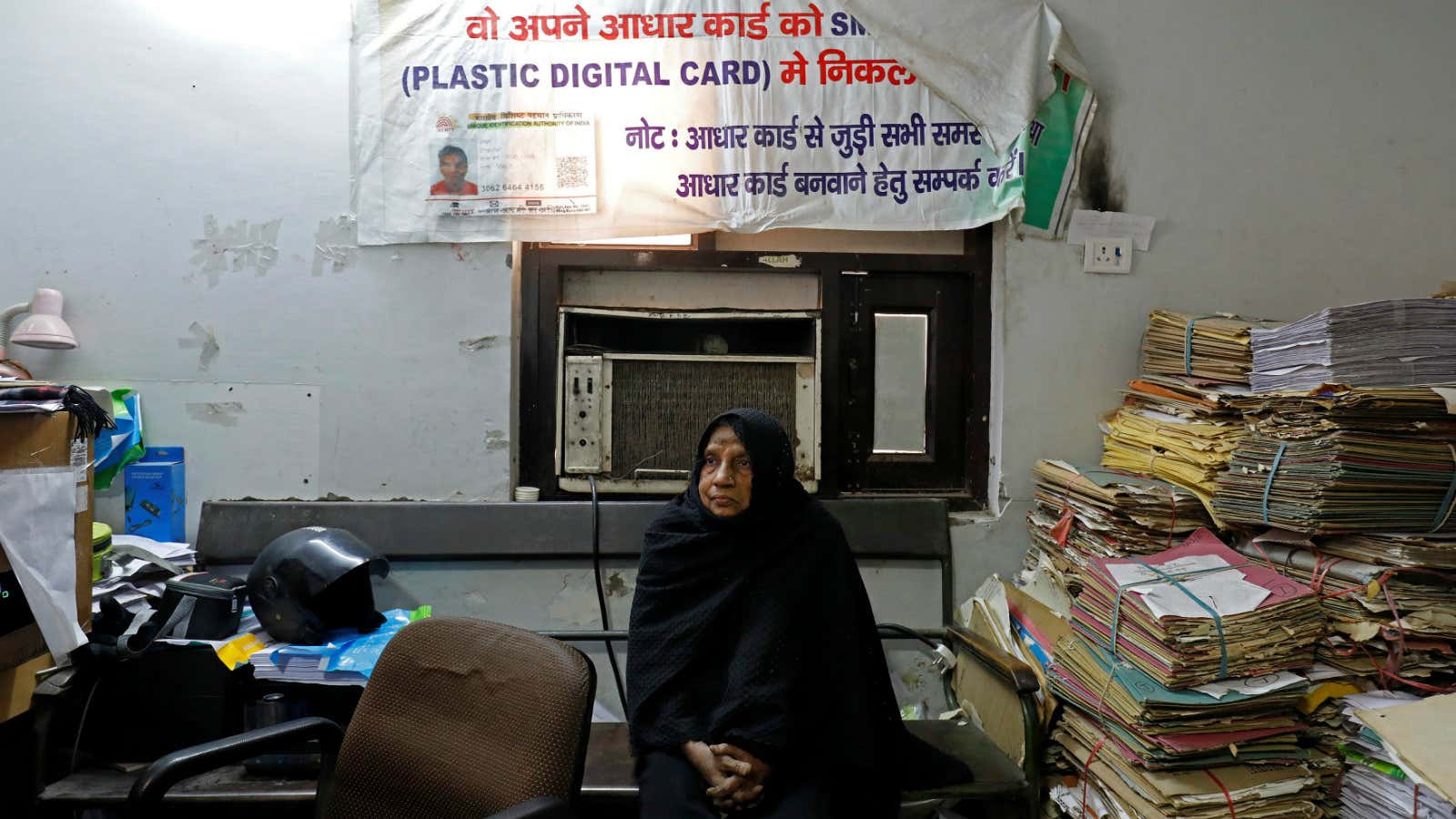It’s been nearly two weeks since India tweaked a law to give private companies access to the biometric-based Aadhaar data. Yet, the lack of clarity in the ordinance has left financial technology firms combing the fine print.
For one, many remain unsure about which companies can actually tap the database.
“It seems only banks—and that, too, only for providing direct benefit transfers to customers—and telecom companies (are allowed to access Aadhaar data), which leaves players like us out,” Satyam Kumar, executive director of LoanTap, a Pune-based firm that provides personal loans told Quartz.
The ordinance had specifically mentioned that banks and telecom companies are allowed to access Aadhaar data. But soon after, India’s minister for law and IT, Ravi Shankar Prasad, left it open-ended saying that “any entity” using it on a voluntary basis need to adhere to the guidelines.
Aditya Kumar, founder and CEO of the Bengaluru-based Qbera, another fintech firm that provides loans, for instance, says that, based on Prasad’s comments, private firms like his can access customers’ Aadhaar data.
Ironically, for the fintech firms, the new ordinance was meant to be a lifesaver. They had been lobbying the government to overturn last September’s supreme court order, which barred the use of Aadhaar information by private companies.
The court order came as a major blow to firms whose entire business model, in certain cases, was built on using Aadhaar to authenticate a customer and provide immediate services such as loans disbursal. Alternative methods to complete the know your customer (KYC) documentation are way more expensive and time-consuming.
But even with the ball in their court now, firms doubt its long-term benefits.
Firms see limited benefits
Assuming that private firms other than banks and telcos are allowed to use Aadhaar data, they believe a lot more can be done to make the process smoother.
“It is definitely a big help for now but the issue doesn’t get fully resolved, because, unlike earlier, the Aadhaar-led verification process is valid for only a year,” explained Vinay Kalantri, founder and managing director of tmw (The Mobile Wallet). “Therefore, it (the ordinance) feels only like a temporary breather.”
However, even with the one-year validity, no one should be complaining because the cost of completing KYC is reduced by nearly 70-75% when the biometric ID is used, believe experts.
Then there is the Rs20 ($0.29) that companies must pay for each customer verification and 50 paise for authentication of the unique ID, according to a recent notification by the unique identification authority of India (UIDAI).
Again, some suggest this is trivial compared to the benefits the ordinance brings. “The (Rs20) cost is something the industry won’t mind because the biggest problem was that business had come to a standstill and it is a small cost,” added Kumar of Qbera. “If I can pay for something and get the business done, then it is going to be preferred, compared with losing out on a customer if other means of authentication are used.”
In certain cases, where the entire business model was based on doing e-KYC via Aadhaar, customer acquisition had temporarily halted in the wake of the supreme court order.
Meanwhile, companies are also exploring non-Aadhaar based means of KYC authentication such as a video or a selfie KYC, added Kalantri, whose firm will be rolling out these options next month.
But given the potential for Aadhaar-based KYC, it would be best if the regulators, or the UIDAI, clarify who can tap the database. “Some clarification is needed to end doubts regarding usage and other operational issues,” said Vivek Belgavi, who heads financial services technology at PwC India. “Till then, uncertainty and volatility in the industry will continue.”
